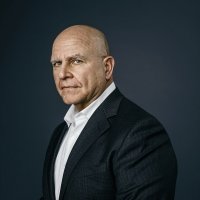Hindsight Up Front: Afghanistan | Ambassador Mark Green in Conversation with H.R. McMaster
This event, part of Hindsight Up Front, the Wilson Center’s new Afghanistan initiative, featured a discussion with H.R. McMaster, a national security adviser in the Trump administration and currently the Fouad and Michelle Ajami Senior Fellow at Stanford University’s Hoover Institution.
The conversation—moderated by Wilson Center President, Director, and CEO Mark Green—assessed nearly 20 years of U.S.-led war in Afghanistan, focused on the U.S. withdrawal and its implications, and considered options for future U.S. policy. The discussion also explored immediate policy recommendations for the Biden administration, and what can be done to ensure that U.S. interests in Afghanistan continue to be advanced.
Key Takeaways
- The costs of staying in Afghanistan with a small troop presence were modest, manageable, and sustainable.
- Counterterrorism activities in Afghanistan and beyond will have limited success without having a presence on the ground.
- Negotiations alone with the Taliban will not prompt the group to reduce violence.
Selected Quotes
H.R. McMaster
"We talked ourselves into defeat in Afghanistan. We had a sustainable commitment and we were engaged in a righteous and worthwhile mission…a mission that was grounded in our interests and in the interests of all humanity."
"We are facing the growth, now, of a multigenerational problem of jihadist terrorism, and disengaging from it is not the answer because it seeds the initiative and resources to our determined, brutal, murderous enemies."
"You still hear the same nonsense—utter nonsense—today by leaders…good people who are the heads of humanitarian organizations or international organizations, [saying] ‘We just need the international community to come together and communicate to the Taliban how disappointed we are in their actions.’ Are you kidding me? Unless we back up what we’re saying, unless we back up our crocodile tears for the Afghan victims with action, it’s not going to make a damn bit of difference."
"Another lesson to learn here from 9/11 and I would say from COVID, is that challenges to our security that develop abroad can only be dealt with at an exorbitant cost once they reach our shores. That, I think, is the strongest and most important argument for remaining engaged with partners who are sharing the burden against this jihadist terrorist threat."
"We set an unrealistic objective I think in the minds of Americans… The narrative was: ‘We failed in Afghanistan because Afghanistan wasn’t Denmark.’ Afghanistan doesn’t need to be Denmark, it just needs to be Afghanistan. Was it still a violent place? Heck yes. Was it still dependent on international support? Heck yes…But if you want to look at whether or not we were winning back then, look at what’s happening in Afghanistan now. Was it worth it, with that relatively small effort, to prevent what’s happening now? I’d say the answer to that has to be 'hell, yes it was.'"
Amb. Mark Green
"The Taliban, when they ruled Afghanistan 20 years ago, it was a medieval governing framework. These days they have a generation who have tasted something in terms of opportunity and liberty. How do we think that plays out? Is this going to be as easy for the Taliban to govern as they think, or as it was 20 years ago?"
Speaker

Moderator

Hosted By

Indo-Pacific Program
The Indo-Pacific Program promotes policy debate and intellectual discussions on US interests in the Asia-Pacific as well as political, economic, security, and social issues relating to the world’s most populous and economically dynamic region. Read more
